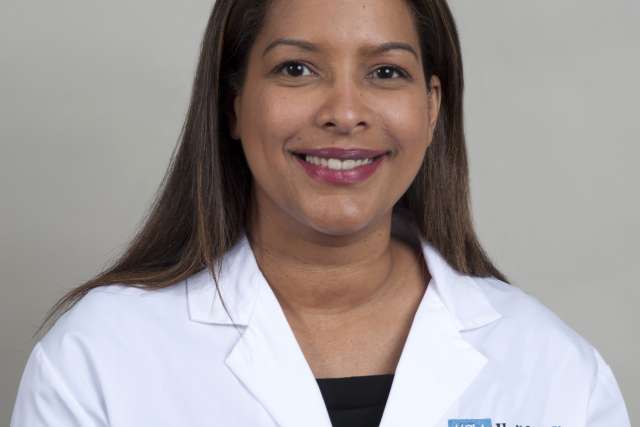Isla Garraway was a researcher working toward her doctorate degree in a lab at UCLA’s Jonsson Comprehensive Cancer Center when her father was diagnosed with prostate cancer in 1994. He was just 61.
It was a shock. Garraway’s father, an Ohio State University professor and biologist, appeared to be in good health and had no family history of prostate cancer. The only sign of the disease was a slightly elevated PSA level.
At the time, Garraway knew very little about the disease that strikes more than 200,000 men every year, killing more than 27,000.
That changed, fast.
For Garraway and her brother, Levi Garraway, then a doctoral candidate working in a lab at Harvard, the disease became top priority.
“Prostate cancer became the focus of our world,” Garraway said. “We were a very close, tight-knit family and this was devastating news. I didn’t know anyone who loved and appreciated and lived life more than my father did.”
The family hoped for the best, but at every turn they got bad news. Her father was not a candidate for surgery. He had a very advanced, high-grade form of prostate cancer. The battle he’d wage, doctors predicted, would be a rough one.
“After what happened to my father, a light bulb went off for me,” said Isla Garraway, who holds both a doctorate and a medical degree. “I knew I had to focus on prostate cancer. Why would I do anything else?”
Their father battled prostate cancer for five years. He lived to walk his daughter down the aisle at her wedding before dying in 1999 at age 65.
Today, in labs at either end of the country, his daughter and son are working to understand the biology behind the development of prostate cancer in the hope that someone else’s father, down the line, will have better therapies with which to battle this disease.
“This is why I’m here, in a sense,” said Levi Garraway, an assistant professor of medicine at Harvard Medical School. “This is why I get up in the morning.”
Now a physician-scientist and surgeon, Isla Garraway runs her own lab at the Jonsson Cancer Center. An assistant professor of urology, she is studying what role adult prostate stem cells play in the development and spread of prostate cancer. She divides her time between her laboratory and treating patients at the Greater Los Angeles Veteran’s Affairs Medical Center and other UCLA affiliated hospitals.
Her brother also is a physician-scientist conducting genome research using DNA array technologies at the Dana-Farber Cancer Institute at Harvard Medical School in Boston. The two talk often on the phone to touch base and share scientific insights. They’re currently collaborating on a study using leading-edge technology that could uncover new genetic mutations that cause prostate cancer.
Isla Garraway said she has much to be grateful to her father for. He sparked her interest in science and his illness guided her research focus. She hopes her work will lead to discoveries that will lead to less toxic and more effective therapies. She also works to raise awareness about prostate cancer, a cause close to her heart.
“Raising awareness is a really big deal to me. The message is that early detection is critical,” Garraway said. “I’ll do whatever I can, inside the lab and out, to fight this disease.”
When she’s not in the lab or treating patients, Garraway, 39, enjoys spending time with her husband, a cardiologist, and their three children, ages 6, 3 and 8 months. They live in Manhattan Beach.




